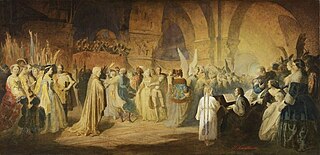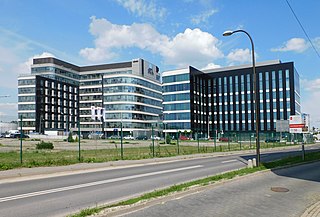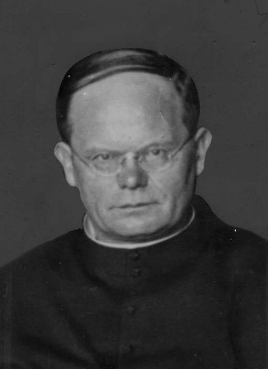
Merkuriusz Polski Ordynaryjny was the first Polish newspaper, published from 1661, first in Kraków, then in Warsaw.

The Warsaw Corps of Cadets was the first state school in the Polish–Lithuanian Commonwealth.
Wielka Encyklopedia PWN is a universal encyclopedia in Polish, published by Wydawnictwo Naukowe PWN in Warsaw, between 2001 and 2005.

Teofil Antoni Jaksa of Griffins Kwiatkowski was a Polish painter.

Wydawnictwo Naukowe PWN is a Polish book publisher, founded in 1951, when it split from the Wydawnictwa Szkolne i Pedagogiczne.

Kazimierz Wojniakowski was a Polish painter, illustrator and Freemason, known primarily for his portraits in the sentimentalist style.

Antoni Edward Odyniec was a Polish Romantic-era poet who penned the celebrated "Song of the Filaretes".

Józef Holewiński (1848–1917) was a Polish graphic artist, engraver and painter.

Adam Mahrburg was a Polish philosopher—the outstanding philosophical mind of Poland's Positivist period.
Gawęda is a genre of Polish oral folklore, as well as an epic literary genre of works stylized as an oral tale, characterized by freedom of composition, rich in digressions, and written in language close to colloquial language. The word literally means "oral tale".

Sebastian Petrycy of Pilzno, in Latin known as Sebastianus Petricius, was a Polish philosopher and physician. He lectured and published notable works in the field of medicine but is principally remembered for his masterly Polish translations of philosophical works by Aristotle and for his commentaries to them. Petrycy made major contributions to nascent Polish philosophical terminology.

Józef Kalasanty Szaniawski was a Polish philosopher and politician.
Feliks Jaroński was a Polish Catholic priest and philosopher.

Piotr Chmielowski was a Polish philosopher, literary historian and critic.
Władysław Weryho (1868–1916) was a Polish social activist, popularizer of learning, especially of philosophy and psychology, and organizer of learned life in partitioned Poland.

Konstanty Michalski (1879–1947) was a Polish Catholic theologian and philosopher.

Władysław Mieczysław Kozłowski was a Polish philosopher.

Franciszek Salezy Krupiński was a Polish philosopher.

Michał Wiszniewski was a Polish philosopher, psychologist, and literary historian.

Chrystian Piotr Aigner was a Polish architect and theoretician of architecture.
















